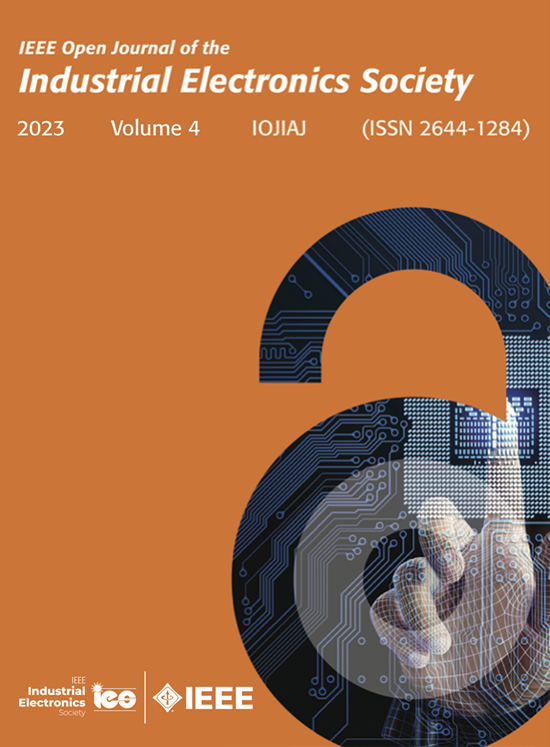电感功率传输耦合器设计中误差公差的鲁棒优化
IF 5.2
Q1 ENGINEERING, ELECTRICAL & ELECTRONIC
IEEE Open Journal of the Industrial Electronics Society
Pub Date : 2023-10-02
DOI:10.1109/OJIES.2023.3321239
引用次数: 0
摘要
耦合器参数,如发射器电感(LTx)、接收器电感(LRx)和耦合系数(k)或互感(M),随失调而变化。它们的变化必须量化并纳入设计和优化阶段,因为它们会影响效率和漏磁场等性能指标。文献中提出的大多数解决方案都会影响耦合器的性能,以寻求偏差容限设计。因此,本文提出了一种方法,通过利用鲁棒优化将失调纳入电感功率转移(IPT)耦合器的设计和优化过程,其中失调被视为噪声、干扰或对完全对准耦合器的不确定性。由该方法产生的优化设计将不会损害耦合器在寻找失准容限设计时的性能。通过3.7kW的硬件原型实验验证了所提出的鲁棒优化方法的有效性。本文章由计算机程序翻译,如有差异,请以英文原文为准。
Robust Optimization for Misalignment Tolerance in Inductive Power Transfer Coupler Design
Coupler parameters, such as transmitter inductance (
LTx
), receiver inductance (
LRx
), and the coupling coefficient (
k
) or mutual inductance (
M
), vary with the misalignments. Their variations must be quantified and incorporated into the design and optimization stage as they impact performance indices such as efficiency and leakage magnetic field. Most of the solutions proposed in the literature compromise the performance of the coupler in search of a misalignment-tolerant design. Therefore, this article presents a method to incorporate the misalignments into the design and optimization process of an inductive power transfer (IPT) coupler by utilizing robust optimization, where misalignments are considered as noises or disturbances or uncertainties to a perfectly aligned coupler. The optimized designs resulting from this method will not compromise the performance of the coupler in search of a misalignment-tolerant design. Effectiveness of the proposed robust optimization method is experimentally verified with a 3.7 kW hardware prototype.
求助全文
通过发布文献求助,成功后即可免费获取论文全文。
去求助
来源期刊

IEEE Open Journal of the Industrial Electronics Society
ENGINEERING, ELECTRICAL & ELECTRONIC-
CiteScore
10.80
自引率
2.40%
发文量
33
审稿时长
12 weeks
期刊介绍:
The IEEE Open Journal of the Industrial Electronics Society is dedicated to advancing information-intensive, knowledge-based automation, and digitalization, aiming to enhance various industrial and infrastructural ecosystems including energy, mobility, health, and home/building infrastructure. Encompassing a range of techniques leveraging data and information acquisition, analysis, manipulation, and distribution, the journal strives to achieve greater flexibility, efficiency, effectiveness, reliability, and security within digitalized and networked environments.
Our scope provides a platform for discourse and dissemination of the latest developments in numerous research and innovation areas. These include electrical components and systems, smart grids, industrial cyber-physical systems, motion control, robotics and mechatronics, sensors and actuators, factory and building communication and automation, industrial digitalization, flexible and reconfigurable manufacturing, assistant systems, industrial applications of artificial intelligence and data science, as well as the implementation of machine learning, artificial neural networks, and fuzzy logic. Additionally, we explore human factors in digitalized and networked ecosystems. Join us in exploring and shaping the future of industrial electronics and digitalization.
 求助内容:
求助内容: 应助结果提醒方式:
应助结果提醒方式:


